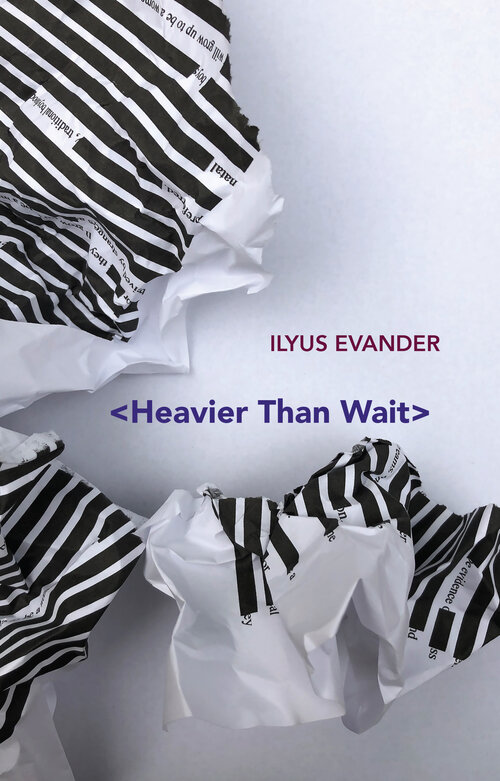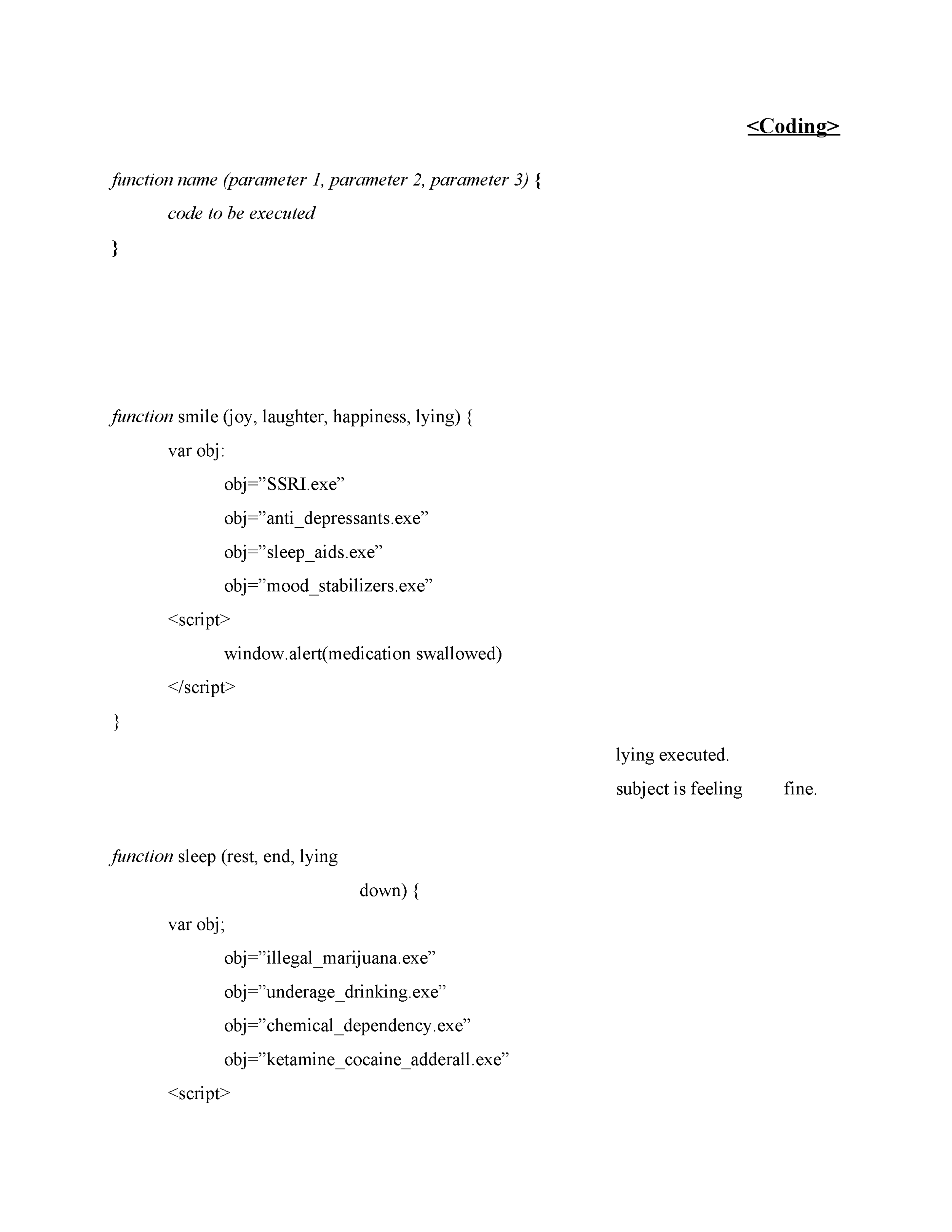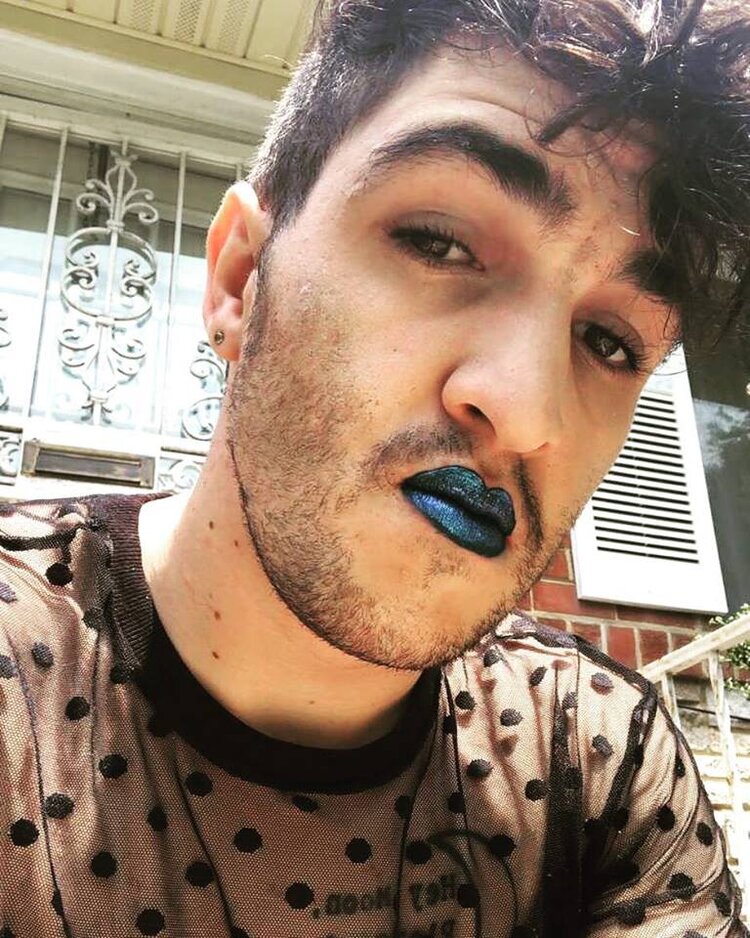A lot of this book is written using language/formatting tied to computer programming, with even the title being formatted in a way that is reminiscent of HTML. Do you have a background in that sort of area, and how did you come to start writing in this mode?
The mental health industry treats patients through a lens that equates apathy with stability (we can’t make you feel better, but we can medicate you until you feel nothing, instead). I used to tell my friends I always felt like I was part robot, because all of my emotions were so clouded by psychiatric medication. I am not super familiar with HTML, JAVA, CSS, or Coding– I skipped the myspace era of social media when everyone could suddenly code their own profiles. I actually took an online JavaScript class in order to learn the very basics of the coding language in order to use it as a motif throughout the book. The collection was, in it’s very earliest form, intended to be a series of short stories about an AI who malfunctions and realizes it never asked to be invented. Maybe I’ll get back to finishing those, eventually- but I think this collection accomplished what those stories wanted to do.
I know you are also a slam poet, and that you incorporate performance heavily into that work. Do you think that there is something lost in translating a poem from the stage to the page, where you are not able to use your voice and body to illustrate or emphasize certain phrases or moments? If so, how do you navigate that transition?
Seeing my work performed is certainly a different experience than reading it on paper. However, if I’m going to make art, written or performance, I am going to make it strange and unfamiliar for whoever is interacting with it. I’m known in the slam world as a rule breaker. There is a certain expectation in slam that the poet will stand at the mic and face the audience. I like to really jazz things up a bit. Sometimes I’ll kneel. Sometimes I’ll turn the mic completely around and not look at the audience for the entire duration of the piece. One of the most important things I tell my students is that you should absolutely break any rule that is hindering your narrative. Break the rule, but know why you are doing it. I tried to maintain that principle through the written collection as well. Every letter is placed where it is on the page on purpose. Every blank page is blank on purpose. Every uncomfortable or confusing moment is intentionally uncomfortable or confusing. I’m excited for it to be safe for me to have a reading of the collection so I can absorb the audience reactions to my performances of some of the stranger pieces.

You also work as a youth slam coach — have you found that those experiences have impacted your own approach to writing?
Working as a youth slam coach is the most rewarding artistic endeavor. Having a team of five young poets think they’re learning from me, when truthfully they are my mentors more often than not, is such an honor and a blessing and a new lesson with each new team. The youth teams I coach challenge me and push me to grow in my own craft unlike anything else has ever been able to. Serving as the Youth Coordinator for the Providence Poetry Slam and the head coach of Providence’s Brave New Voices Team for the past few years has been the greatest gift poetry has brought to me. Youth, and particularly black youth and young people of color, are changing the world- that includes the poetry world. I truly believe that.
The title of this collection is a pun, which I know you are a huge fan of. I would love to hear the most cringe-worthy, Dad joke-y pun you know.
Haha! I have one two-hitter that I love so much, I use it at the start (and end) of every poetry feature. After the first poem I’ll ask the audience What do you call a flock of birds that always sticks together? The answer, of course, being Vel-Crows.
AND THEN
At the very end of the set I’ll ask the same question and act all surprised that they already knew the answer, which opens the door to me saying “ugh. Vel-Crows. What a rip off.” *ba dum tsssssssssssss*
What three books, poetry or otherwise, do you think everyone should read at some point?
Haroun and the Sea of Stories –Salman Rushdie (Fiction Novel)
Interpreter of Maladies– Jhumpa Lahiri (Short Story Collection)
Rocket Fantastic– Gabrielle Calvocoressi (Poetry Collection)
Sample poem from Heavier Than Wait:



Ilyus Evander is a non-binary transfem poet and organizer from Providence, RI. They have represented the Providence Poetry Slam at Brave New Voices, the National Poetry Slam, and the Women of the World Poetry Slam. They are a two time Capturing Fire Queer Poetry Summit Finalist and a 2018 FEMSlam Champion. Their debut collection, Heavier Than Wait, is available from Game Over Books website. Their work can be found in Broken Head, Stoked!, CapFire Press, Slam!Find, and elsewhere.
